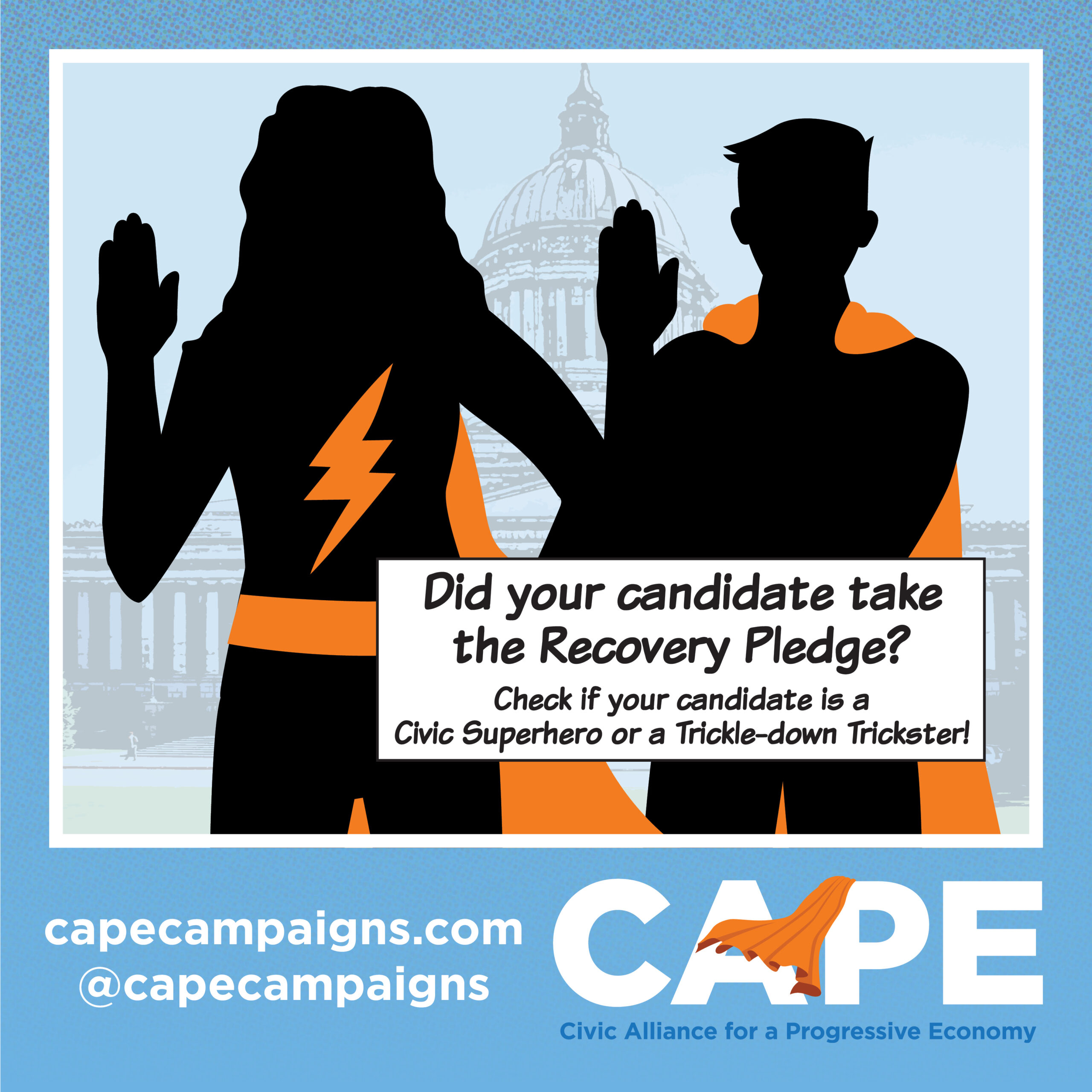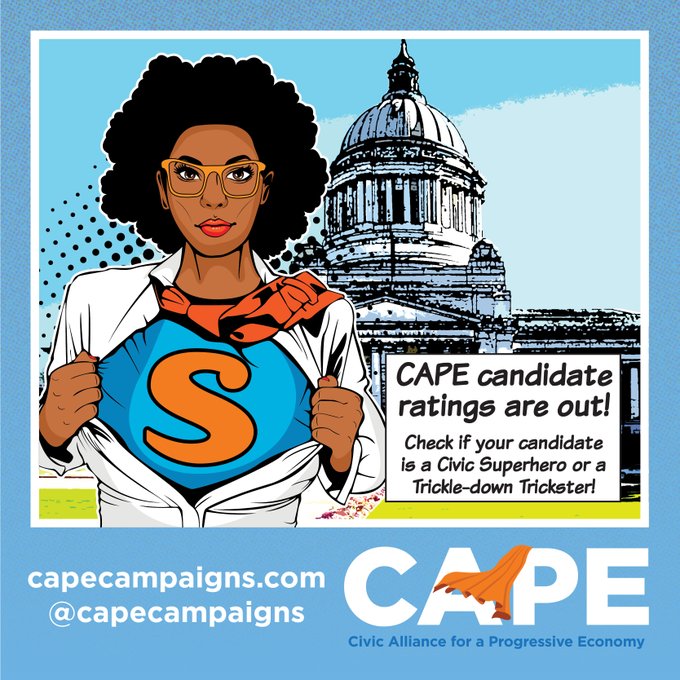With so much at stake in this year’s election, it’s important to not overlook the obvious: who we elect will be responsible for guiding our nation and our state out of our economic crisis.
There are three critical data points to remember:
- We’re living through the deepest recession since the Second World War.
- Nearly half (48 percent) of households with incomes below $75,000 have lost employment income during the COVID pandemic, while income loss is much lower in high income households (see Economic Opportunity Institute).
- Washington State lawmakers will be faced with a projected $4.2 billion revenue shortfall over the next two years.
Some economists are also calling our current recession a K-shaped recession. That means high-income jobs are coming back, but lower-paying jobs aren’t. This is likely to only exacerbate income inequality across the United States and especially here in Washington State.
Enter the Civic Alliance for a Progressive Economy (CAPE), a joint project of Civic Ventures, Working Washington and OneAmerica Votes. CAPE is dedicated to the principle that prosperity comes from greater economic inclusion, and that the more people we include in our economy, the more the economy will grow. The economy isn’t Wall Street or quarterly reports – it’s people.
In the 2020 state legislative elections, CAPE asked candidates about how they would create a more equitable and progressive tax system – one where everyone pays their fair share; how they would approach looming budget deficits – we know from past experience that cutting the budget prolongs economic slowdowns; and what they would do to make the economy more inclusive.
Based on responses and other research, earlier this month CAPE issued ratings for most candidates for state legislature. See how CAPE rated your candidates.

As part of our outreach to 2020 legislative candidates, we also invited them to sign an Economic Recovery Pledge: “I commit to fight for our communities by rejecting a cuts only approach to the state budget and will fight to preserve public services and find new sources of revenue to invest in our state. Slashing budgets and cutting programs that provide resources to those in need will only prolong this economic crisis. We can grow the economy for everyone by prioritizing families and small businesses over the interests of the wealthy few.” See who signed the Pledge.
Together, with these 90 candidates, we are helping to shift the narrative toward a conversation about economic recovery, instead of deficits. Looking ahead to the November 3rd elections, our task (after we’ve voted) will be to hold all elected leaders accountable for ensuring that we re-build a better, more inclusive economy where all of us can thrive.
